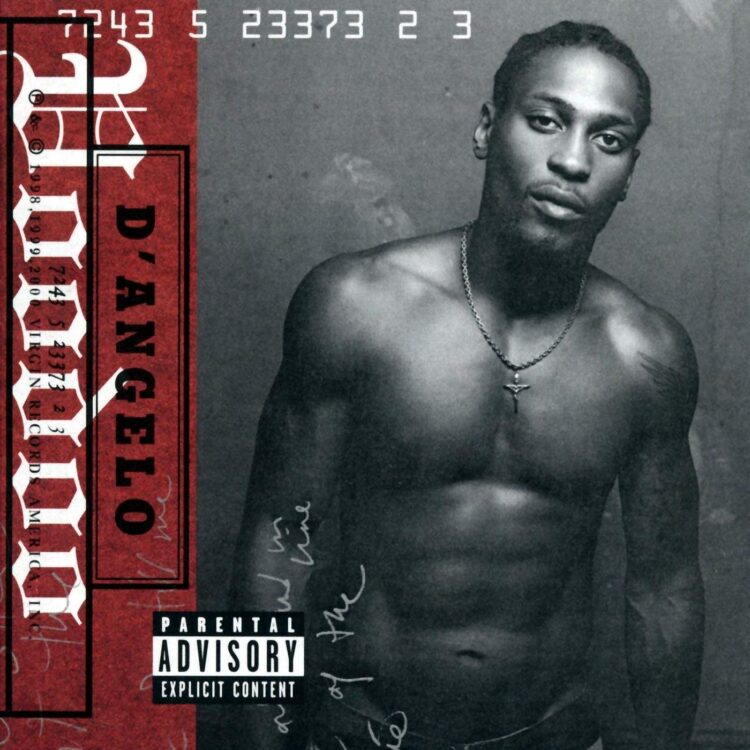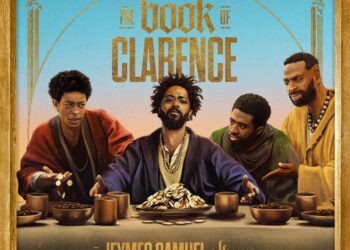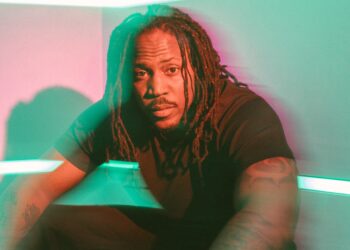Soul music is unequivocally synonymous with Michael Eugene Archer, universally known as D’Angelo. His God-given ability to summon suppressed emotions through song can solely be provoked by him.
Officially appearing on the music scene in 1995 with Brown Sugar, D’Angelo offered a smoother, more down-to-earth option for R&B music fans to indulge. Incorporating hints of gospel with a sprinkle of funk, his auditory premiere was met with a multitude of praises, building an enigmatically fascinating legacy before him. Roughly five years later, his sophomore album Voodoo was released on January 25, taking a more homegrown, scenic route.
Voodoo blended hip-hop and jazz into his melodic style, creating an unpolished sound that was the antithesis of its predecessor. While it was initially critiqued with premature takes of misunderstanding, it didn’t withdraw from the fact that it became a favorite among critics and music lovers.
Nuanced and curated with layers of varying genres, a hefty helping of live instrumentation and gratifyingly wayward vocal techniques, arrangements and song structures, it’s clear why the compositely assembled album justly matured into a cult classic.
While the success of Brown Sugar served as the layup to D’Angelo’s growing career, it took a considerable amount of time for him to get into the groove that produced Voodoo. The birth of his son in 1998 spurred much inspiration to help the soul singer overcome the writer’s block that plagued him after his debut. His disposition about the fame that came with his music played a factor into his break as well.
“After Brown Sugar, I lost my enthusiasm to do all this,” he shared with Rolling Stone. “I had to reiterate why I was doin’ that in the first place, and the reason was the love for the music. I was gettin’ jaded, lookin’ at what go on in the business. But, I had to say, even if I didn’t do this, I’d still be fuckin’ with the music. So I’m cursed, and I’m gon’ be cursed till the day I die. So this is what I’m gon’ do.”
Considering his gift a curse was an unsuspecting connection to the album title — being taken over by a powerful energy of which you have no control. The title derived from D’Angelo’s mission to remind people of the forceful effect music possesses.
He explained in Jet Magazine, “I was really trying to give a notion to how powerful music is and how we as artists, when we cross over, need to respect the power of music…music has the power to evoke emotions, evoke spirit.” It is challenging to deny the album’s entrancing hold because like voodoo, when the music takes over, there’s nothing to do but allow the guiding experience to dominate.
Similar to the African tradition, D’Angelo and his dream team, including his right-hand drummer ?uestlove of The Roots and jazz trumpeter Roy Hargrove, rounded up their musical ancestors to awaken their energy during the album-making process. Their creative hub was the esteemed Electric Lady Studio in New York City, built by rock guitarist Jimi Hendrix.
Having the records of their spirit guides adorned throughout the studio, it assisted D’Angelo to “be inspired and make that type of funky music.” As a study guide of sorts, D’Angelo and ?uestlove made a ritual of indulging in old performance tapes of their forefathers, such as George Clinton, James Brown and Sly and the Family Stone, to name a few.
Through its free-form aura, fluid-structure, or lack thereof and streams of continuity, it’s clear that 95% of Voodoo was created through hours and hours of jam sessions. Its demo-like presence thrives throughout, driving home the true essence of D’Angelo’s intentions.
The only song on the album that was officially made was the first song that led to the album’s inception, “Send it On.” An ode to his newborn son, he soulfully soothes with lyrics about love and spirit along a divinely anchored sea of guitar, bass, kick drum and horns.
As the initial offering of what was to come from the long-awaited project, “Devil’s Pie” presented an introduction to his new sound. Produced by DJ Premier of Gang Starr, he vocally added a blues-influenced spirit to the bopping boom-bap rap production. He addresses materialism and the evil that comes with it along the bluesy bass, in a time where access to money and wealth was ever-growing within the hip hop culture.
Some of the most mystical and virtuosic moments on the album come from the improvisationally free yet flowing tracks “The Root” and “Medley: Greatdayndamornin’ / Booty.” Longingly crooning about a former lover who has a hold on him, the guitar and bass bring a slight brightness to this rather hopelessly emotive number, which are being played simultaneously.
Refraining a portion of the chorus into itself like a spell, D’Angelo pulls listeners into an oblivious state that’s only broken at the song’s completion. The other brilliantly contrived song “Medley: Greatdayndamornin’ / Booty” oozes a flawless concoction of jazz and soul, with the bass serving as the necessary lifeline. Colored by electric piano and guitar, he dazedly vibes out on taking things one day at a time but breaks out of that trance and switches into a more uptempo snare dominant groove for the other half of the track.
“Untitled (How Does It Feel)” pays homage to one of his influences Prince, without doing an outright cover. The content, along with the production, gets straight to the point; the slightly delayed snare and kick drum paired with a seductively sauntering electric guitar and throbbing bass naturally set the mood. D’Angelo scrupulously uses his impressively solid falsetto, hitting multiple peaks starting from the bridge to the end, coming to an abrupt halt, melodically mirroring the exact act he conveys through song.
The one-shot music video of a shirtless and muscular D’Angelo transformed him into an unsolicited sex symbol. As the steamy visual did greatly assist in album sales, the attention seemingly became less on his stellar body of work and more on his enticing appearance. Trying to find a balance between being a musician and entertainer was proven on the Voodoo tour; as D’Angelo reluctantly fed into the role by performing half-naked to hundreds of women screaming and clamoring for him, he didn’t want his artistry to get lost in the frenzy.
His extreme talents overshadowed any vanity-related recognition, determining that the music was landed its mark. D’Angelo won Best R&B Album and Best Male R&B Vocal Performance for “Untitled (How Does It Feel)” at the 43rd Grammy Awards in 2001. A number of staff members from the New York Times included Voodoo on its list of top 10 albums of 2000, with chief popular music critic Jon Pareles ranking it as his number one album.
Voodoo was an album that took time for everyone who wasn’t in tune to catch on to. In his insightful but conflicting OkayPlayer review, ?uestlove made the statement, “Music lovers come under two umbrellas. Number one: those who use it for growth and spiritual fulfillment and number two: those who use it for mere background music.”
The specially inclined group who use it for spiritual growth was utterly moved by D’Angelo’s sophomore production. For the people who understood his otherworldly genius upon the first or fifteenth listen, it conjured up feelings that couldn’t be explained, but felt. There’s a certain pull that’s experienced from the start with “Playa Playa” that lingers even after “Africa” cuts off; a sense of catharsis that takes over, taking listeners into a warped, nostalgically current stupor.
D’Angelo is known for taking his time when creating his masterpieces, but if everything to come from him invokes the spiritual, life-changing ethos that was woven into Voodoo, the wait will be beyond worth it.
Listen to Voodoo by D’Angelo below.




